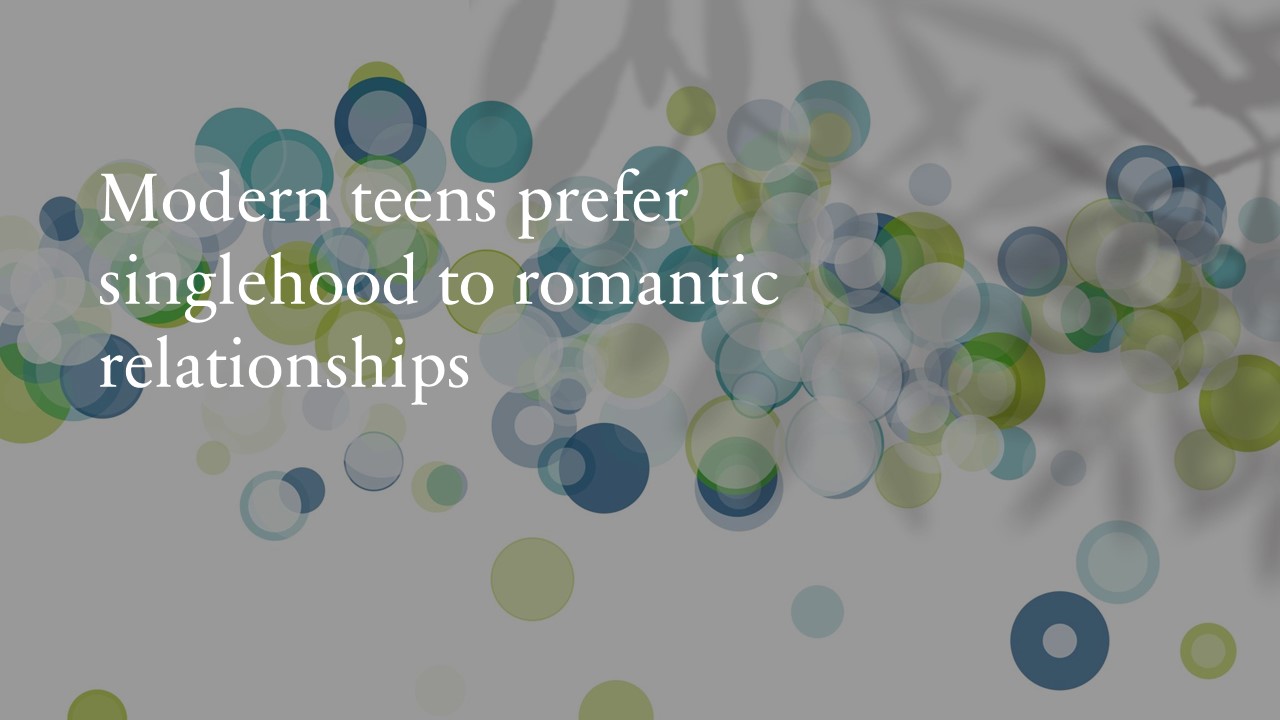It appears that singlehood has become a substantially increasing tendency in modern societies. Many young men and women prefer to be single rather than in a committed relationship. Aspiration for a happy marriage lost its allure in the eyes of modern young people.
Growing Tendency of Singlehood
The general decline in marriages that occurred in the second part of the 20th century significantly accelerated in the 21st century. Partners living together without officially registering their relationship became the norm. In the United States, the number of unmarried couples living together increased seven times between 1970 and 1999.
Researchers were surprised by the evolution of marriage into singlehood in recent decades. The number of people living alone in the 21st century has been steadily increasing. While the percentage of American adults without a partner was 29% in 1990, it increased to 38% in 2019.
Over the past few decades, divorce rates and the percentage of single-person households have increased, while marriage rates have decreased globally. Singlehood is now more socially acceptable than it was in the past, particularly in Western industrialized countries, where it was once considered unconventional.
Is it okay to be single? Are they happy or unhappy being alone?
An increasing number of men and women are choosing to live as singles, meaning they are not involved in a committed romantic partnership. Until recently, it has remained uncertain whether the rise in singlehood has corresponded to a greater level of contentment with being single.
Several studies have shown that single men and women can be okay and even content without being in romantic or other committed relationships (Karandashev, V., December 6, 202; June 17, 2023).
What about teenagers? What about young men and women? In the past, they were the most romantic people across many cultures (Karandashev, 2017).
Many Teenagers Are Okay Not Being in Romantic Relationships
A new study shows that many teenagers are okay and satisfied with being in a romantic relationship. It turns out that modern young people aged 14 to 20 are more satisfied with being single than they were ten years ago. This is the conclusion of a study conducted by the Institute of Psychology at Johannes Gutenberg University Mainz, Germany (Gonzalez Avilés, T. et al., 2024).
As psychologist Dr. Tita Gonzalez Avilés, lead author of the recent study, said, “It seems that today’s adolescents are less inclined to pursue a romantic relationship. This could well be the reason for the increased single-hood satisfaction.”
Single People these Days Compared to Single People Ten Years Ago
Dr. Gonzalez Avilés and her colleagues from the Institute of Psychology at the Johannes Gutenberg University Mainz, Germany, analyzed the data collected from the representative longitudinal Panel Analysis of Intimate Relationships and Family Dynamics. Researchers have been surveying the nature of romantic relationships and family dynamics in Germany since 2008.
The purpose of the study was to learn whether men and women are now more satisfied with this single way of life without a romantic relationship.
In their study, researchers administered a survey among 2,936 participants belonging to various birth cohorts. The researchers collected data from two distinct time frames: from 2008 to 2011 and from 2018 to 2021. This enabled the researchers to distinguish between the satisfaction levels of individuals who were born earlier and those who were born later, during the stages of adolescence (14-20 years), emerging adulthood (24-30 years), and established adulthood (34-40 years).
Their findings indicate that adolescent singles born in 2001 to 2003 were more often single and more satisfied with singlehood than the birth cohort born ten years earlier. Furthermore, there were no cohort-related differences between emerging adults aged 24 to 30 years and established adults aged 34 to 40.
The difference in satisfaction between the present and ten years ago is not particularly substantial, even among teenagers. Nevertheless, it is a significant deviation from the historical trends among adults. One possible explanation is that living alone has become more common over time, particularly among younger people. They have also changed their views on traditional dating rules and are now more open to different types of relationships.
As Dr. Gonzalez Avilés concluded,
“We assume that adolescents nowadays may postpone entering into a stable relationship because they value their personal autonomy and individual fulfillment over a romantic partnership. However, these explanations are—for the time being—speculative and require further investigation.”
References
Karandashev, V. (2017). Romantic love in cultural contexts. Springer.
Karandashev, V. (December 6, 2022). Is It Okay to Be Single? The Diversity of Love Journal. https://love-diversity.org/is-it-okay-to-be-single/
Karandashev, V. (June 17, 2023). A Study Shows How Modern Single People Can Be Happy. The Diversity of Love Journal. https://love-diversity.org/a-new-study-shows-how-happy-modern-single-people-are/
Gonzalez Avilés, T., Bühler, J. L., Brandt, N. D., & Neyer, F. J. (2024). Today’s Adolescents Are More Satisfied With Being Single: Findings From a German Cohort-Sequential Study Among 14-to 40-Year-Olds. Personality and Social Psychology Bulletin, 01461672241257139. DOI: 10.1177/01461672241257139
